Fellowship
ASTFE is accepting nominations to the grade of ASTFE Fellow.
The qualifications and selection procedure for the Fellows are outlined in the document:
ASTFE Fellow Selection
Nominations for the Fellow grade may be made at any time during the calendar year. For the consideration of a nomination by the Council, the documentation package must be received by the Society before September 30, of the year prior to the year when the award is to be made. The nomination letter, the nominee's CV, and all other supporting documents should be combined into a single pdf file and sent to fellow. Letters should be addressed to the ASTFE Honors and Awards Council, American Society of Thermal and Fluids Engineers, 50 North Street, Danbury, CT 06810, USA.
Elected ASTFE Fellows 2025
 Hongbin (Bill) Ma
Hongbin (Bill) Ma Efstathios E. (Stathis) Michaelides
Efstathios E. (Stathis) Michaelides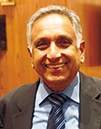 Surya Pratap Vanka
Surya Pratap Vanka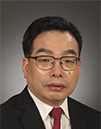 Qiuwang Wang
Qiuwang WangAffiliations:
- Curators’ Distinguished Professor
- Glen A. Barton Professor of Mechanical and Aerospace Engineering, University of Missouri
Bio: Dr. Hongbin Ma is the Chair, Curators’ Distinguished Professor, and Glen A. Barton Professor of Mechanical and Aerospace Engineering, as well as the Director of the Multiphysics Energy Research Center (MERC) in the College of Engineering at the University of Missouri (MU). His work focuses on phase-change heat transfer, heat pipes, ejector refrigeration, and thermal management. His research has been supported by the National Science Foundation (NSF), Department of Energy (DOE), Department of Education, Defense Advanced Research Projects Agency (DARPA), the U.S. Army, Office of Naval Research (ONR), Air Force Research Laboratory (AFRL), National Institutes of Health (NIH), Intel, Northrop Grumman, Dell, Rockwell Science Center, Foxconn, ExxonMobil, and many other private companies. His research work has resulted in more than 330 publications, including 1 book, 8 book chapters, and 188 refereed journal papers, as well as 14 granted patents and 8 patents pending. His research has led to the establishment of two companies: ThermAvant Technologies (TAT), where he serves as co-founder and president, and ThermAvant International (TAI), where he is co-founder and CEO. TAT has become the largest U.S. manufacturer and supplier of high-performance oscillating heat pipe (OHP) cooling devices, serving leading defense companies across the country. His pioneering work in phase-change heat transfer and microchannel flow also resulted in the creation of Burnout Drink-Now coffee mugs, a well-established brand of innovative, temperature-controlled coffee mugs. He is a Fellow of the American Society of Mechanical Engineers (ASME) and a Fellow of the National Academy of Inventors (NAI).
Affiliations:
- Tex Moncrief Chair of Engineering, Texas Christian University
Bio: Professor Stathis Michaelides currently holds the Tex Moncrief Chair of Engineering at Texas Christian University (TCU). He was awarded a B.A. degree (honors) from Oxford University and M.S. and Ph.D. degrees from Brown University. He was awarded the M.A. degree honoris causa from Oxford University (1983); the Casberg and Schillizzi Fellowships at St. Johns College, Oxford; the student chapter ASME/Phi,Beta,Tau excellence in teaching award (1991 and 2001); the Lee H. Johnson award for teaching excellence (1995) at Tulane; a Senior Fulbright Fellowship (1997); the ASME Freeman Scholar award (2002); the Outstanding Researcher award at Tulane (2003); the ASME Outstanding Service citation (2007); the ASME Fluids engineering award (2014); the ASME 90th Anniversary of FED Medal (2016), the ASME Edwin F. Church Medal, (2021), and the ASME James Harry Potter Gold Medal (2024). He has also been the Chair of the Faculty Senate at TCU (2015-2016). Professor Michaelides has authored more than 180 journal papers; gave more than 300 presentations in national and international conferences; and has authored eight books. His latest book on Energy Storage – Driving the Renewable Energy Transition, (CRC/Routledge) is due on March 13, 2025
Affiliations:
- Professor Emeritus, University of Illinois Urbana-Champaign
Bio: Pratap Vanka is Professor Emeritus in the Department of Mechanical Science and Engineering, UIUC. He has pioneered several numerical algorithms including multigrid methods, Lattice Boltzmann methods, meshless techniques, GPU computing, and partially-parabolic methods. He has taught a graduate level CFD course at University of Illinois for 30 years. He is passionate about developing codes for CFD and heat transfer and has developed more than 25 research level CFD codes since his graduate research at Imperial College. He worked for his Ph. D. with Professor D. B. Spalding (late), a pioneer in computational fluid dynamics and computational heat transfer. Pratap Vanka has published more than 170 papers in journals and reviewed technical conferences on heat transfer, metal solidification, combustion and computational methods. He has received several teaching and research awards. He is a Life Fellow of ASME, Fellow of APS, Associate Fellow of AIAA, and recipient of the ASME Freeman Scholar lecture award.
Affiliations:
- Distinguished Professor, School of Energy and Power Engineering, Xi’an Jiaotong University
Bio: Dr. Qiuwang Wang is a distinguished professor at the School of Energy and Power Engineering and the Executive Director of the International Joint Research Laboratory of Thermal Science and Engineering at Xi’an Jiaotong University. His research interests are focused on heat transfer enhancement and energy conservation, fundamentals and technologies of energy storage, heat transfer under extreme conditions, heat transfer in porous media, and the prediction and optimization of thermal and fluid problems. Dr. Wang has authored or co-authored four books and over 400 international journal papers, achieving an H-index of 61. He has been recognized as a Highly Cited Scholar in China by Elsevier and included in the Lifetime Scientific Impact List. Additionally, he holds five US patents and over 90 Chinese invention patents. Dr. Wang has been elected as a Fellow of ASME, a China Delegate of the Assembly for International Heat Transfer Conference (AIHTC), an executive member of the Scientific Council of the International Centre for Heat & Mass Transfer (ICHMT), and a vice president of the Chinese Society of Engineering Thermophysics in Heat & Mass Transfer. He also serves as the founding Editor-in-Chief of Energy Storage and Saving and as an Associate Editor for International Journal of Heat and Mass Transfer and Heat Transfer Engineering. Dr. Wang is the founding chair of two prestigious international conferences: the International Workshop on Heat Transfer Advances for Energy Conservation and Pollution Control (IWHT, held biennially since 2011) and the International Conference on Energy Storage and Saving (held annually since 2022).
Elected ASTFE Fellows 2024
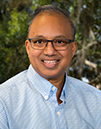 Sivaramakrishnan Balachandar
Sivaramakrishnan Balachandar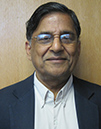 Ashwani Gupta
Ashwani Gupta Pamela Norris
Pamela Norris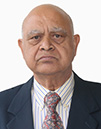 Akshai Runchal
Akshai Runchal Ting Wang
Ting Wang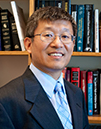 Yuwen Zhang
Yuwen ZhangAffiliations:
- Newton C. Ebaugh Professor
- Distinguished Professor, University of Florida
Bio: Professor S. "Bala" Balachandar got his MS and PhD in Applied Mathematics and Engineering at Brown University in 1985 and 1989. From 1990 to 2005 he was at the University of Illinois, Urbana-Champaign, in the Department of Theoretical and Applied Mechanics. From 2005 to 2011 he served as the Chairman of the Department of Mechanical and Aerospace Engineering at the University of Florida. Currently he is a distinguished professor, the Newton C. Ebaugh Professor of Mechanical & Aerospace Engineering, and the Director of College of Engineering Institute for Computational Engineering at the University of Florida. He received the Francois Naftali Frenkiel Award from American Physical Society (APS) Division of Fluid Dynamics (DFD) in 1996 and the Arnold O. Beckman Award and the University Scholar Award from University of Illinois. He is Fellow of ASME and the American Physical Society Division of Fluid Dynamics. He was the recipient of ASME Freeman Fellowship Award (2017), Gad Hetsroni Senior Researcher Award from ICMF (2019), Outstanding Alumnus Award from the Indian Institute of Technology, Madras (2019), Outstanding Doctoral Mentoring Award from the University of Florida (2020), Thermal Fluids Engineering Award from ASTFE (2022), University of Florida Research Foundation Professorship (2023), and the Fluids Engineering Award from ASME (2024). He is currently the co-editor-in-chief of the International Journal of Multiphase Flow and an associate editor of the Theoretical and Computational Fluid Dynamics.
Affiliations:
- Distinguished University Professor
- Minta Martin Professor of Engineering, University of Maryland
Bio: Dr. Ashwani K. Gupta is a Distinguished University Professor and Minta Martin Professor of Engineering at the University of Maryland, College Park. He obtained his PhD and higher doctorate (DSc) from the University of Sheffield, UK, and also DSc from the University of Southampton, UK. He received Honorary Doctorates from the University of Wisconsin Milwaukee, the University of Derby, UK, and KMUTNB, Thailand, bestowed by the Princess of Thailand. His research interests include swirl flows, combustion, air pollution, sprays, high intensity distributed combustion, fuel reforming, waste and biomass to clean fuels, pyrolysis and gasification, biofuels, acid gas treatment for sulfur recovery, hydrogen production and use, gas turbine combustion, industrial furnaces, high-speed flows, and laser diagnostics. He is Honorary Fellow of American Society of Mechanical Engineers (ASME) and Royal Aeronautical Society (RAeS), UK. He is Fellow of the Royal Academy of Engineering, UK (FREng), and a Fellow of American Institute of Aeronautics and Astronautics (AIAA) and Society of Automotive Engineers (SAE), American Association for the Advancement of Science (AAAS), and a Member of the European Academy of Sciences and Arts (EASA). He is co-editor of the Energy Engineering and Environment Series published by CRC Publishers and Editor in Chief of the Intl. J. of Energy for a Clean Environment published by Begell House. He is Associate Editor of J. Propulsion & Power, Intl. J. Sprays & Combustion Dynamics, and J. Applied Energy. He is the recipient of AIAA Energy Systems, Propellants & Combustion, Air Breathing Propulsion, and Pendray awards; ASME George Westinghouse Gold, James Harry Potter Gold, James Landis, Worcester Reed Warner, Holley Medal, Honda Medal, and Melville Medal awards; ASME-AIM Percy Nicholls award; ASEE Ralph Coats Roe award; and and Dixy Lee Ray awards. At the University of Maryland, he received President Kirwan Research award and College of Eng. Research award. He has co-authored over 310+ journal papers, 550 plus conference papers, 3 books, and 18 edited books.
Affiliations:
- Dean, College of Engineering, University of Delaware
- Vice Provost for Research, George Washington University
- Frederick Tracy Morse Professor Emerita of Mechanical and Aerospace Engineering, University of Virginia
Bio: Dr. Pamela Norris is the Vice Provost for Research at George Washington University and the Frederick Tracy Morse Professor Emerita of Mechanical and Aerospace Engineering at University of Virginia, where she previously served as Executive Dean and as Executive Associate Dean for Research and in the School of Engineering. She is recognized globally as a leading expert in nanoscale heat transfer, especially interfacial thermal transport with a focus on thermal management across a range of length scales. She holds patents for innovative thermal management techniques for jet-blast deflectors as well as for applications of aerogels in areas ranging from biological warfare detection to lab-on-a-chip to thermal insulation.
Dr. Norris is well-known for her mentoring skills and for her dedication to increasing diversity in the STEM disciplines. In 2016 she was honored with the Society of Women Engineers Distinguished Engineering Educator Award “for enduring, positive influence on students’ lives as a gifted teacher, mentor, and role model; and for promoting greater diversity in STEM higher education”. She is also well known for leadership in the field of nanotechnology education, chairing the American Society of Mechanical Engineers (ASME) National Nanotechnology Institute’s Committee on Nanotechnology Education from 2003-2010 and organizing the first national Nano-Training Bootcamps, at the leading edge of the field. In 2021 she was elected as honorary member of American Society of Mechanical Engineers for “international leadership in nano, micro and macroscale thermal science and engineering research; for tireless efforts to advance diversity in STEM fields; and for demonstrating engineering excellence as an outstanding mentor for students and faculty.” She currently serves as the Editor-in-Chief of Nanoscale and Microscale Thermophysical Engineering. Dr. Norris received her Ph.D. from Georgia Institute of Technology and was a postdoctoral scholar at University of California, Berkeley.
Affiliations:
- President and Founding Partner, ACRi
Bio: Dr. Akshai K. Runchal has over 50 years of experience in CFD and simulation of flow, heat and mass transport processes in engineering and environmental sciences, He obtained his Ph.D. in 1969 from Imperial College (London) under the guidance of Prof. D, B. Spalding. He was a key member of the 3-person team led by Spalding that invented the Finite Volume Method (FVM) of Fluid Dynamics (CFD) in mid 1960’s. He started his professional career as a faculty at IIT Kanpur in 1969 and has also taught as regular or adjunct faculty at Imperial College (London), University of California (Los Angeles), Cal Tech (Pasadena), and Cal State (Northridge). In 1979, Dr. Runchal established the ACRi group of companies (www.acricfd.com) that has offices in the USA, France and India.
For the past 50 years, Dr Runchal, has consulted extensively on projects related to flow, heat and mass transfer, combustion, environmental impact, management of air, surface and ground water resources, safe disposal of hazardous and nuclear waste, and, policy and decision analysis. Dr. Runchal is a co-author of the first book ever published on CFD. He is the author or co-author of 12 books and over 200 technical publications. He is the principal author of the ANSWER®, PORFLOW®, TIDAL®, and RADM™ CFD Soft-ware Tools that are widely employed by commercial, academic, and R&D organizations. (www.acricfd.com)
Dr. Runchal has received professional honours and awards and has delivered keynote and invited talks at more than 100 international conferences and seminars. In 2011, Dr. Runchal founded a non-profit CFD Virtual Reality Institute (www.CFDVRi.org) to further the cause of CFD education, training, and R&D. He divides his time between Los Angeles and McLeod Ganj and is actively engaged in promoting education, training, and R&D in CFD and related disciplines
Affiliations:
- University of New Orleans
Bio: Professor Ting Wang is currently the Director of Energy Conversion and Conservation Center (ECCC) and Matthey Endowed Chair for Energy Research of University of New Orleans (UNO). He is also a Professor of Department of Mechanical Engineering. Prior to UNO, he taught 15 years at Clemson University in South Carolina, USA. He has been involved in energy conservation and power generation research in full spectrum for the past 40 years. He specializes in gas turbine power generation, turbomachinery, coal gasification, poly-generation, integrated gasification combined cycle (IGCC), Micro Combined Cooling, Heating, and Power (Micro-CCHP), multiphase flow heat transfer, mist cooling, energy efficiency, and general thermal-flow engineering. He has conducted both fundamental and applied research with funding from U.S. governmental agencies, such as Air Force Office of Scientific Research (AFOSR), Office of Naval Research (ONR), U.S. Department of Energy (DOE), USAID, National Science Foundation (NSF) and various industries, including General Electric, Siemens, 3M, Entergy, Dynergy, Power Engineering, Rain CII Carbon, and Louisiana Steam Equipment Company.
Professor Wang received a Ph .D from University of Minnesota at Twin Cities in 1984, an M.S. degree from State University of New York at Buffalo in 1981, and B.S. from Tatung Institute of Technology in Taiwan with a major in mechanical engineering. He has published over 330 research papers and reports. He was the recipient of the American Society of Mechanical Engineers (ASME) George Westinghouse Silver Medal for his contributions to power engineering in general and the Edward F. Obert Award for research in the area of Integrated Mild-Partial Gasification Cycle (IMPGC). He was the Past Chair of two ASME committees (Coal, Biomass, Hydrogen, and Alternative Fuels Committee and Gas Turbine Heat Transfer Committee). He also serves on the Executive Committee of American Society of Thermal and Fluids Engineers (ASTFE) and on the board of International Board of Pittsburgh Coal Conferences. He was on the editorial board of three International Journals. He was appointed by former Louisiana Governor “Mike” Foster as a member of the Louisiana Comprehensive Energy Policy Advisory Commission. He is an ASME and ASTFE Fellow.
Affiliations:
- Curators' Distinguished Professor
- Huber and Helen Croft Chair in Engineering, University of Missouri
Bio: Dr. Zhang received his Ph.D. degree from the University of Connecticut in 1998 and taught at New Mexico State University before joining the faculty at the University of Missouri (MU) in 2003, where he served as the Chair of the Department of Mechanical and Aerospace Engineering from 2013 to 2017. He is presently a Curators’ Distinguished Professor and Huber and Helen Croft Chair in Engineering at the University of Missouri.
Dr. Zhang's research area is in heat and mass transfer with applications in nanomanufacturing, thermal management, and energy storage and conversion. He has published over 330 journal papers and more than 180 conference papers/presentations. He also published three textbooks entitled Transport Phenomena in Multiphase Systems, Advanced Heat and Mass Transfer, and Fundamentals of Multiphase Heat Transfer and Flow, and edited other four research monographs. He is serving as editor-in-chief, associate editor, and editorial board member of several journals, as well as congress, track, and session chair for numerous national and international conferences in thermal fluids engineering.
Dr. Zhang is a recipient of the Office of Naval Research Young Investigator Award, and the University of Missouri Chancellor's Award for Outstanding Research and Creative Activity. He was elected to the Fellow grade by the American Society of Mechanical Engineers (ASME) and the American Association for the Advancement of Science (AAAS).
Elected ASTFE Fellows 2023
 Nesrin Ozalp
Nesrin Ozalp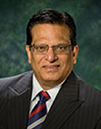 Vish Prasad
Vish Prasad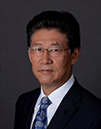 Yong Tao
Yong Tao SA Sherif
SA SherifAffiliations:
- Professor of Mechanical Engineering, Purdue University Northwest
Bio: Nesrin Ozalp is a Professor of Mechanical Engineering at Purdue University Northwest and a Full Professor by Courtesy at the School of Mechanical Engineering of Purdue University West Lafayette. Dr. Ozalp specializes in the areas of experimental and numerical study of thermal transport processes. Her research focuses on multiphase convective and radiative heat transfer analysis of solar thermochemical processes with non-linear temperature patterns and turbulent flow dynamics. She is the Lead Principal Investigator of research projects totaling $5M+, the corresponding author of 130+ peer reviewed publications, and Co-PI of completed Phase I of Solar Carbon Black commercialization with Fraunhofer. She is the past chair of ASME Solar Energy Executive Committee, chair of the ASME Heat Transfer and Thermal Sciences Education technical committee, Inaugural Executive Committee member of the American Society of Thermal Fluids Engineers, General Chair and/or Technical Program Chair of several ASME and ASTFE conferences, and the recipient of many research, teaching, and service awards. Dr. Ozalp is an ASME Fellow and an ASTFE Fellow.
Ozalp's research is focused on experimental development of innovative and unique solar-thermochemical energy systems to produce fuels and commodities with significantly reduced emission footprint. She has built a strong and internationally recognized research program on solar cracking of natural gas for hydrogen production. She numerically models multi-phase, unsteady, chemically reacting flows.
Affiliations:
- Professor of Mechanical Engineering, University of North Texas
Bio: Dr. Vish Prasad, currently Professor of Mechanical and Energy Engineering at University of North Texas, is an internationally-renowned researcher and academic leader. His research has focused on convective heat transfer, heat transfer in porous media, energy materials and devices, advanced materials processing and manufacturing, microelectronics, and computational methods. Dr. Prasad has published over two hundred fifteen invited and/or refereed articles, made over one hundred conference presentations, and organized numerous conferences, symposia, and workshops. He serves (or has served) on many Editorial Advisory Boards as well as an Editor or Co-editor of several archival journals, monographs, annual reviews, and a hand book on crystal growth. He has been a consultant to many companies, has four patents to his credit, and currently serves as an advisor to a major engineering publishing house. As a PI/ Co-PI, Dr. Prasad has received over $25 million in grants and contracts from federal agencies and industry. And, over the years, he has mentored/advised sixteen doctoral students, twelve post-doctoral fellows, six visiting scientists, and numerous masters and undergraduate students.
In the academic leadership role, Dr. Prasad has served as the President of Mody University of Science and Technology (Rajasthan, India, 2/2014-8/2015), Vice President for Research and Economic Development of University of North Texas (2007-2012), Executive Dean/Dean of the College of Engineering and Computing at Florida International University (FIU, 2001-2007), Interim Dean of Engineering at Wichita State University (2013), and Associate Dean for Research and Graduate Studies in the College of Engineering and Applied Sciences at Stony Brook University (1997-2001). His academic positions include Assistant Professor and Associate Professor of Mechanical Engineering at Columbia University (1984-1993), Professor and Leading Professor of Mechanical Engineering (1993-2001) as well as Professor of Materials Science and Engineering (joint appointment, 1997-2001) at Stony Brook, and Distinguished Professor of Mechanical and Materials Engineering at FIU (2001-2007).
Dr. Prasad has received 2020 Heat Transfer Memorial Award from the American Society of Mechanical Engineers, 2011 Michael P. Malone International Leadership Award from the Association of Public and Land-Grant Universities (APLU), 2010 Award for building Texas-India Educational Partnership from the Greater Dallas Indo-American Chambers of Commerce, 2006 Academic Excellence Medal from the Latin American and Caribbean Consortium of Engineering Institutions for contributions to engineering education in Latin America and the Caribbean, and 2005 Distinguished Service Medal for Engineering Education in Latin America from Santa Maria University. He has also received 2007 Educator of the Year Award for contributions to engineering education to Hispanics, from HENAAC (now known as “Great Minds in STEM”) – a national organization that honors Hispanic leaders in engineering and business and 2006 ABET President’s Diversity Award on behalf of the FIU College of Engineering and Computing from the Accreditation Board of Engineering and Technology (ABET). Dr. Prasad is the Founding President of Latin American and Caribbean Consortium of Engineering Institutions (LACCEI) and Co-founder of Mattoo Center for India Studies at Stony Brook. Dr. Prasad is an elected Fellow of the American Society of Mechanical Engineer (ASME). In the past, he has served as the Chair of several ASME Heat Transfer Division Committees and a member of the USRA Microgravity Research Council for a major NASA Program. Dr. Prasad received his B.S. from National Institute of Technology, Patna (India), M. Tech. from Indian Institute of Technology, Kanpur, and Ph.D. from University of Delaware, all in mechanical engineering.
Affiliations:
- Professor, Chair & BLG Endowed, Washkewicz College of Engineering, Cleveland State University
Bio: Dr. Yong Tao is the Betty L. Gordon Endowed Chair and Distinguished Professor, and department chair of Mechanical Engineering. He directs Center for Integrated Modeling in Energy, Resilience and Sustainability (IERS Center) at CSU. Dr. Tao's research interests include (i) fundamentals of thermal/fluids sciences, (ii) renewable energy and energy efficiency in buildings, including solar, wind, and geothermal heat pump systems, and (iii) sustainability science. His research has attracted more than $19.5M funding from the US federal agencies and industries, including multidisciplinary research network projects, such as Predictive Modeling Network for Sustainable Human-Building Ecosystems, where researchers from engineering, computer science and social science work together to advance the discoveries and solutions for better world.
Dr. Tao is a fellow of ASME, past chair of ASME Heat Transfer Division, founding board director and President of American Society of Thermal & Fluids Engineers (ASTFE), editor-in-chief of Heat Transfer Research journal, and a licensed Professional Engineer.
Dr. Tao comes to CSU from the College of Engineering and Computing at Nova Southeastern University (NSU) in Florida, where he was the founding dean of this College (later changed to College of Computing and Engineering). Prior to joining NSU he served in the department of Mechanical and Energy Engineering at the University of North Texas (UNT) in Denton as chair, endowed PACCAR professor of engineering, distinguished research professor, and director of PACCAR Technology Institute, hosting the unique zero energy research lab. He was responsible for tremendous growth of new B.S. and new Ph.D. programs, and research profile. Dr. Tao has also served as associate dean at Florida International University (FIU) in Miami, while on faculty as professor of mechanical and materials engineering and director of the Building, Energy, Environment and Conservation Systems Laboratory before joining UNT.
In 2005, he was the faculty leader of the award-winning Solar Decathlon entry. During 2008 International Olympics, he served as Project Director of the American House, as playing a vital role in building better international collaboration "in the area of energy-efficient buildings" (quote from the U.S. Secretaries of Commence and Energy.)
Affiliations:
- Professor, MAE Excellence Term, University of Florida
Bio: Dr. S.A. Sherif is a tenured Professor of Mechanical and Aerospace Engineering and is the Founding Director of the Wayne K. and Lyla L. Masur HVAC Laboratory, the Director of the Industrial Assessment Center and the Director of the Mobile Energy Laboratory at the University of Florida. He served as Co-Director of the Southeastern Center for Industrial Energy Intensity Reduction at the University of Florida (2009-2013). He also served on the faculties of the University of Florida (1991-present), University of Miami (1987-1991), and Northern Illinois University (1984-1987). He is a Life Fellow of ASME, a Life Fellow of ASHRAE, a Fellow of the Royal Aeronautical Society, an Associate Fellow of AIAA, a Vice President of Commission B-2 on Refrigerating Equipment of the International Institute of Refrigeration, a Member of the Advisory Board of Directors of the International Association for Hydrogen Energy, and a Founding Member of the Board of Directors of the American Society of Thermal and Fluids Engineers. He served as Technical Editor of the ASME Journal of Thermal Science and Engineering Applications (2014-2019), Technical Editor of the ASME Journal of Solar Energy Engineering (2020-2025), and as Subject Editor of the International Journal of Hydrogen Energy (2005-2011). He has also served as Subject Editor, Associate Editor, or Editorial Board Member of 25 other archival journals. He has one book, 24 book chapters, more than 300 refereed publications, 200 technical reports, and two US patents.
Elected ASTFE Fellows 2022
 Jane Davidson
Jane Davidson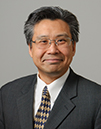 Wilson K. S. Chiu
Wilson K. S. Chiu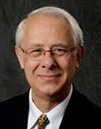 Darrell Pepper
Darrell PepperAffiliations:
- Director, Solar Energy Laboratory
- Professor, Mechanical Engineering, College of Science and Engineering, University of Minnesota
Bio: Jane H. Davidson, a mechanical engineering professor in the University of Minnesota College of Science and Engineering, has been named as the recipient of the American Society of Mechanical Engineers (ASME) Frank Kreith Energy Award for significant research on solar systems for residential buildings and solar thermo chemical cycles to produce fuels.
Davidson, director of the University of Minnesota's Solar Energy Laboratory and Ronald L. and Janet A. Christenson chair of renewable energy, was also honored for contributions as an exemplary educator in renewable energy and for shaping solar energy research and policies at the national and international level.
The award was established in 2005 to honor an individual for significant contributions to a secure energy future with particular emphasis on innovations in conservation and/or renewable energy.
Before coming to the University of Minnesota in 1993, Davidson was a faculty member at the University of Delaware, Newark, and the Colorado State University, Fort Collins; and held engineering positions at the Oak Ridge National Laboratory, Tennessee, and the Research Triangle Institute, North Carolina.
Her current areas of research include solar energy systems for residential buildings and solar thermo-chemical cycles to produce fuels. In 2011, she and her colleagues inaugurated the first indoor concentrating solar simulator in the United States. It is used to test prototype solar reactors. In the conduct of her research, she has been the major advisor of 26 doctoral and 49 master’s degree students.
Davidson recently served on the National Research Council’s America’s Energy Future Renewable Electricity Panel, Governor Tim Pawlenty’s Clean Energy Technology Task Force and ASME’s Global Climate Change Task Force. She also served as an elected member of the boards of the American Solar Energy Society (ASES) and the Solar Rating and Certification Corporation.
Davidson has published more than 250 scientific papers, including over 105 articles in archival journals, and six book chapters. She has lectured worldwide in diverse venues, and has briefed Congress and state legislatures on energy issues. She served as associate editor (1992-98) and editor (2000-05) of the ASME Journal of Solar Energy Engineering.
An ASME Fellow, Davidson has held various positions in the Society, including chair of the ASME Solar Energy Division (SED). She currently serves on ASME’s Publications Committee (2012-15), and was the Society’s representative for the inaugural Carbon Management Technology Conference held in February. Since 1996, she has organized numerous SED symposiums, panels and technical paper sessions. She received an ASME Dedicated Service Award in 2003 and SED’s John I. Yellott Award in 2004. She is a member of Tau Beta Pi, the Engineering Honor Society, and Sigma Xi, the Scientific Research Society.
Davidson received her bachelor’s and master’s degrees in engineering science and mechanics from the University of Tennessee, Knoxville, in 1975 and 1976, respectively. She earned her Ph.D. in mechanical engineering from Duke University (Durham, N.C.) in 1984.
Affiliations:
- Professor, Department of Mechanical Engineering, University of Connecticut
Bio: Dr. Chiu joined the University of Connecticut in August 1999 where he is now Professor in the Department of Mechanical Engineering. He earned his M.S. and Ph.D. degrees in Mechanical Engineering from Rutgers University in 1997 and 1999, respectively. His research, supported by the U.S. Department of Energy, National Science Foundation, Office of Naval Research, Army Research Office, and industry, focuses on heat and mass transfer with chemical reactions, with applications to materials for sustainable energy applications (fuel cell, battery, gas separation membrane, metal foam, electrolyzer, solar cell, waste form), carbon nano-materials, photonics, and semiconductors.
Dr. Chiu published 112 journal articles and 171 conference articles/abstracts. Among his honors, he was elected fellow of American Society of Mechanical Engineers (ASME), elected into the Connecticut Academy of Science and Engineering, received the Rutgers University School of Engineering Medal of Excellence Award for Distinguished Young Alumnus, the United Technologies Corporation Professorship in Engineering Innovation, the ASME Bergles-Rohsenow Young Investigator Award in Heat Transfer, the U.S. Army Research Office Young Investigator Award, the National Science Foundation CAREER Award, and the Office of Naval Research Young Investigator Award.
He serves on the executive committee of the ASME Advanced Energy Systems Division and the ECS High Temperature Materials Division, He serves is the editor of the ASME Journal of Electrochemical Energy Conversion and Storage, associate editor for the International Journal of Thermal Sciences, on the editorial board of Scientific Reports, and was associate editor for the ASME Journal of Heat Transfer during 2012-2016. He has served as organizer, session chair/co-chair, or on the program committee for over 45 conferences and workshops, and has given over 100 plenary, keynote and invited lectures in the United States and abroad.
Affiliations:
- Professor of Mechanical Engineering, University of Nevada Las Vegas, NV, USA
- Director of Nevada Center for Advanced Computation Methods (NCACM)
Bio: Following graduation from UMR in 1973 and a postdoctoral in 1974, Darrell joined E. I. Du Pont, Savannah River Laboratory, where he served in various technical and management positions. In 1987, he was appointed Chief Scientist of The Marquardt Company, Van Nuys, Calif., and worked on the National Aerospace Plane program. In 1988, he co-founded Advanced Projects Research, Inc, and in 1990 was appointed Professor of Mechanical Engineering at California State University Northridge. He joined the University of Nevada Las Vegas in 1992, was appointed Chair of the Mechanical Engineering Department, and founded the Nevada Center for Advanced Computational Methods in 1996. In 2002, he was appointed Interim Dean of the College of Engineering. In 2001 he founded Nevada Energy and Environmental Systems, a small engineering consulting company. In 2004, he served as an ASME Congressional Fellow in the office of U.S. Senator Dianne Feinstein in Washington, DC, where he handled science and technology issues. He received the international Eric Reissner Medal from the ICCES for his work in computational heat transfer in 2008 and the Harry Reid Silver State Research Award from UNLV in 2010. In 2011, Darrell received the AIAA Sustained Service Award; in 2012, he was awarded the AIAA Energy Systems Medal. Darrell was appointed Distinguished Visiting Professor at the U.S. Air Force Academy in Colorado Springs, CO, where he was located until May 2013.
Elected ASTFE Fellows March 2021
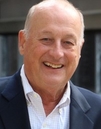 Francis Kulacki
Francis Kulacki John H. Lienhard V
John H. Lienhard V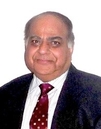 Yogesh Jaluria
Yogesh Jaluria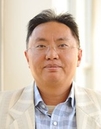 Zhixiong (James) Guo
Zhixiong (James) Guo Ramesh K Agarwal
Ramesh K AgarwalAffiliations:
- American Society of Mechanical Engineers
- American Association for the Advancement of Sciences
- American Society of Thermal and Fluid Engineers
- Mechanical, Materials and Aerospace Engorging Department, Illinois Institute of Technology
Bio: Dr. Frank Kulacki is Professor of Mechanical Engineering at the University of Minnesota. He received his education in mechanical engineering at the Illinois Institute of Technology and the University of Minnesota. His research and scholarly interests have included coupled heat and mass transfer in porous media, two-phase flow in micro-channels, natural convection heat transfer with solar energy applications, heat transfer in metal foams, hybrid renewable energy systems, energy policy, boiling of dilute emulsions, management of technology, and the adaptation of computer-based technologies in engineering education. This research has resulted in several engineering correlations for heat transfer with broadly based design and process applications. His administrative appointments include department chair at the University of Delaware, dean of engineering at the Colorado State University and dean of the College of Science and Engineering at the University of Minnesota. In each of these positions he was instrumental in initiating and expanding computer-aided engineering and technology-based instructional activities, increasing research funding, and establishing new multidisciplinary degree programs, research initiatives, centers and specialized research facilities. He has served as Chair of the Heat Transfer Division of ASME and as a member of Board on Professional Development, the Board on Engineering Education, and the Board of the Education Center. He has served on several the college advisory boards and currently on the board of the Mechanical, Materials and Aerospace Engorging Department at Illinois Institute of Technology. He is Life Fellow of ASME and Fellow of AAAS. He has received the ASME Heat Transfer Memorial Award and the AICHE Kern award for contributions to heat transfer engineering. He was awarded the ASME E. F. Church award for his contributions to engineering education.
Affiliations:
- Department of Mechanical Engineering, Massachusetts Institute of Technology
- Director, Abdul Latif Jameel Water and Food Systems Lab (https://jwafs.mit.edu)
- Director, Rohsenow Kendall Heat Transfer Laboratory (https://rklab.mit.edu)
- Abdul Latif Jameel Professor of Water and Mechanical Engineering
Bio: John H. Lienhard V is the Abdul Latif Jameel Professor and the founding Director of the Abdul Latif Jameel Water and Food Systems Lab at MIT. During more than three decades on the MIT faculty, Lienhard’s research and educational efforts have focused on heat and mass transfer, water purification and desalination, and thermodynamics. He has also filled a number of administrative roles at MIT.
Lienhard received his bachelor’s and master’s degrees in thermal engineering at UCLA from the Chemical, Nuclear, and Thermal Engineering Department, where he worked on buoyant instabilities in solar collectors and evaporating meniscus measurements for MED desalination systems. He joined MIT immediately after completing his PhD in the Applied Mechanics and Engineering Science Department at UC San Diego, where he did wind-tunnel experiments on thermally stratified turbulent flows. Lienhard’s research on water purification includes humidification-dehumidification desalination, membrane distillation desalination, forward and reverse osmosis, nanofiltration, electrodialysis, solar-driven desalination, solvent extraction, bubble columns, scale formation and membrane fouling, salinity gradient power, management of high salinity brines, thermodynamic and energy efficiency analysis of desalination cycles, treatment of wastewater from oil/gas operations, and energy-water nexus issues. Lienhard has also done research on high heat flux engineering, liquid jet impingement cooling, and electronics thermal management. Lienhard has directly supervised more than 90 graduate theses and postdoctoral associates, and is author of more than 275 peer-reviewed publications. He has been issued more than 35 US patents, most of which have been commercialized through start-up companies.
Lienhard is a recipient of the 1988 National Science Foundation Presidential Young Investigator Award, the 1992 SAE Teetor Award, a 1997 R&D 100 Award, the 2012 ASME Globalization Medal, the 2015 ASME Heat Transfer Memorial Award, and the 2019 ASME Edward F. Obert Award (in thermodynamics). He is a Fellow of the American Society of Mechanical Engineers and a Fellow of the American Association for the Advancement of Science. He has been the Director of the Rohsenow Kendall Heat Transfer Laboratory since 1997. Lienhard is the co-author of textbooks on heat transfer, on thermal modeling, and on measurement and instrumentation. His heat transfer book has been available online at no charge since 2002, and hundreds of thousands of copies have been downloaded worldwide. His measurements book has sold more than 130,000 copies. He has created new courses on desalination, on thermal modeling, and on compressible fluid mechanics. He has also received several teaching and mentoring awards at MIT.
Professor Lienhard has been the Director of the Rohsenow Kendall Heat Transfer Laboratory since 1997, and he was the founding Director of the Center for Clean Water and Clean Energy and of the Ibn Khaldun Fellowship program for Saudi Arabian Women (IBK). His research collaborations have extended to Chile, China, India, Israel, Kuwait, Saudi Arabia, Singapore, Spain, United Arab Emirates, and elsewhere. As Director of J-WAFS, he coordinates MIT’s research in food security and water supply for a growing population on a changing planet.
Affiliations:
- Mechanical and Aerospace Engineering Department, Rutgers, the State University of New Jersey
- Honorary Member, ASME
- Fellow, AAAS
- Fellow, APS
- Fellow, American Society Thermal Fluids Engineers (ASTFE)
Bio: Professor Yogesh Jaluria is Board of Governors Professor and Distinguished Professor at Rutgers, the State University of New Jersey. His research work is in the field of thermal science and engineering, covering areas like convection, fires, materials processing, thermal management of electronics, energy, and environment. He is the author/co-author of 10 books and the editor/coeditor of 15 conference proceedings and 11 books. He has contributed over 500 technical articles, including over 220 in archival journals and 19 book chapters. He has received several awards and honors for his work, such as the prestigious 2020 Holley Medal from the American Society of Mechanical Engineers (ASME) for his work on optical fiber drawing, 2007 Kern Award from American Institute of Chemical Engineers (AIChE) for outstanding contributions to heat transfer or energy conversion, the 2003 Robert Henry Thurston Lecture Award from ASME, and the 2002 Max Jakob Memorial Award, the highest international recognition in heat transfer, from ASME and the AIChE. He received the 2000 Freeman Scholar Award and the 1995 Heat Transfer Memorial Award from ASME. He has served as Department Chairman and as Dean of Engineering. He served as the Editor of the Journal of Heat Transfer and Computational Mechanics. He is an Honorary Member of ASME, a Fellow of AAAS and APS, and an Associate Fellow of AIAA. He served as the founding President of the American Society of Thermal and Fluids Engineers (ASTFE) from 2014 to 2019.
Affiliations:
- American Society of Mechanical Engineers
- American Society of Thermal and Fluid Engineers
Bio: Dr. Zhixiong Guo is a Professor of Mechanical and Aerospace Engineering at Rutgers University-New Brunswick. He graduated from Tsinghua University, China; and worked in KAIST, South Korea, and Tohoku University, Japan before moving to the USA. After receiving a Ph.D. degree in Mechanical Engineering from NYU-Tandon School of Engineering, he joined the faculty at Rutgers in 2001. Dr. Guo is an expert in heat transfer with specialty in thermal radiation and heat transfer enhancement. He explores not only the extremes of very small length, time, and strength scales in the fundamental study of thermal energy transport and laser applications, but also the technological developments of large-scale industrial practice. He is the author/co-author of over 250 archival journal and conference papers. Dr. Guo is a Fellow of ASME. He is the Editor-in-Chief for Journal of Enhanced Heat Transfer, the Managing Editor for Heat Transfer Research, and an advisory board member for Applied Thermal Engineering and an editorial board member for Frontiers in Energy. Prof. Guo was bestowed the Rutgers Board of Trustees Award for Excellence in Research in 2018.
Affiliations:
- Consortium for Clean Coal Utilization
- Division of Biology & Biomedical Sciences
- Institute for Public Health
- Washington University Climate Change Program
Bio: Prior to joining the faculty at Washington University in 2001, Professor Agarwal was the Chair of the Aerospace Engineering Department at Wichita State University from 1994 to 1996 and the Executive Director of National Institute for Aviation Research from 1996 to 2001. From 1994 to 2001, he was also the Bloomfield Distinguished Professor at Wichita State University.
From 1978 to 1994, Professor Agarwal worked in various scientific and managerial positions at McDonnell Douglas Research Laboratories in St. Louis. He became the Program Director and McDonnell Douglas Fellow in 1990. From 1976 to 1978, Professor Agarwal worked as a NRC Research Associate at NASA Ames Research Center and as a Principal Research Engineer at Rao and Associates in Palo Alto, California from 1975 to 1976.
Over a period of 45 years, Professor Agarwal has worked in Computational Fluid Dynamics (CFD), Computational Magnetohydrodynamics (MHD) and Electromagnetics, Computational Aeroacoustics, Multidisciplinary Design and Optimization, Rarefied Gas Dynamics and Hypersonic Flows, Bio-Fluid Dynamics, and Flow and Flight Control. More recently, he has devoted some of his efforts in nanotechnology and renewable energy systems - in particular wind, solar and biomass. He is the author and coauthor of over 600 publications and serves on the editorial board of more than 20 journals. He has given many plenary, keynote and invited lectures at various national and international conferences in over 60 countries worldwide. Professor Agarwal continues to serve on many professional, government, and industrial advisory committees.
Professor Agarwal is a Fellow of 23 societies including: American Association for Advancement of Science (AAAS), American Institute of Aeronautics and Astronautics (AIAA), American Physical Society (APS), American Society of Mechanical Engineers (ASME), Institute of Electrical and Electronics Engineers (IEEE), Society of Automotive Engineers (SAE), Society of Manufacturing Engineers (SME), American Academy of Mechanics (AAM), American Society of Civil Engineers (ASCE), Chinese Society of Aeronautics and Astronautics (CSAA), Institute of Pysics (IOP), UK, Institute of Engineering and Technology (IET), Energy Institute (EI), Australian Institute of High Energetic Materials, American Society for Engineering Education (ASEE), Academy of Science of St. Louis, Royal Aeronautical Society (RAeS), etc. and World Innovation Foundation (WIF). He has received many honors and awards for his research contributions including the ASME Fluids Engineering Award (2001), ASME Charles Russ Richards Memorial Award (2006), Royal Aeronautical Society Gold Award (2007), AIAA Aerodynamics Award (2008), AIAA/SAE 2009 William Littlewood Lecture Award (2009), James B. Eads Award of Academy of Science of St. Louis (2009), ASEE/AIAA John Leland Atwood Award (2009), SAE Clarence Kelly Johnson Award (2009), SAE Franklin W. Kolk Award (2009), AIAA Lindbergh Award (2010), SAE Aerospace Engineering Leadership Award (2013), SAE Excellence in Engineering Education Award, SAE International Medal of Honor (2015) and AIAA Reed Aeronautics Award (2015) among many others.
Elected ASTFE Fellows March 2020
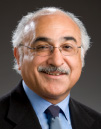 Afshin J. Ghajar
Afshin J. Ghajar
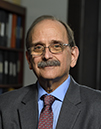 Joseph Katz
Joseph Katz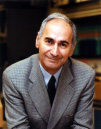 Massoud Kaviany
Massoud Kaviany
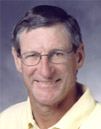 John K. Eaton
John K. Eaton
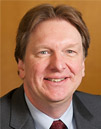 Michael W. Plesniak
Michael W. Plesniak
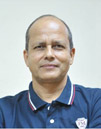 Pradip Dutta
Pradip Dutta
Affiliation:
- Regents Professor and John Brammer Endowed Professor School of Mechanical and Aerospace Engineering Oklahoma State University
Bio: Afshin J. Ghajar is Regents Professor and John Brammer Professor in the School of Mechanical and Aerospace Engineering at Oklahoma State University, Stillwater, Oklahoma, USA and a Honorary Professor of Xi'an Jiaotong University, Xi'an, China. He received his B.S., M.S., and Ph.D. all in Mechanical Engineering from Oklahoma State University. His expertise is in experimental heat transfer/fluid mechanics and development of practical engineering correlations. Dr. Ghajar has made significant contributions to the field of thermal sciences through his experimental, empirical, and numerical works in heat transfer and stratification in sensible heat storage systems, heat transfer to non-Newtonian fluids, heat transfer in the transition region, and non-boiling heat transfer in two-phase flow. His current research is in two-phase flow heat transfer/ pressure drop studies in pipes with different orientations, heat transfer/pressure drop in mini/micro tubes, and mixed convective heat transfer/pressure drop in the transition region (plain and enhanced tubes). Dr. Ghajar has been a Summer Research Fellow at Wright Patterson AFB (Dayton, Ohio) and Dow Chemical Company (Freeport, Texas). He and his co-workers have published over 200 reviewed research papers and 10 book/handbook chapters. He has delivered numerous keynote and invited lectures at major technical conferences and institutions. He has received several outstanding teaching, research, advising, and service awards from College of Engineering at Oklahoma State University. His latest significant awards are the 75th Anniversary Medal of the ASME Heat Transfer Division "in recognition of his service to the heat transfer community and contributions to the field", awarded in 2013, the ASME ICNMM 2016 Outstanding Leadership Award, this award recognizes a person whose service within the ICNMM (International Conference on Nanochannels, Microchannels, and Minichannels) is exemplary; the recipient of the award contributed significantly to the lasting success of the conference, and the 2017 Donald Q. Kern Award "in recognition of his extensive record of major contributions to the science and technology of heat transfer". Dr. Ghajar is a Fellow of the American Society of Mechanical Engineers (ASME), Heat Transfer Series Editor for CRC Press/Taylor & Francis (he has edited nine books to date), and Editor-in-Chief of Heat Transfer Engineering, an international journal published twenty times per year by Taylor and Francis. Heat Transfer Engineering is aimed at practicing engineers and specialists in heat transfer. Dr. Ghajar is also the co-author of the 5th Edition of Cengel and Ghajar, Heat and Mass Transfer – Fundamentals and Applications, McGraw-Hill, 2015.
Affiliation:
- William F. Ward Distinguished Professor Department of Mechanical Engineering The Johns Hopkins University
Bio: Joseph Katz received his B.S. degree from Tel Aviv University, and his M.S. and Ph.D. from California Institute of Technology, all in mechanical engineering. He is the William F. Ward Sr. Distinguished Professor of Engineering, and the director and co-founder of the Center for Environmental and Applied Fluid Mechanics at Johns Hopkins University. He is a Member of the National Academy of Engineering, as well as a Fellow of the American Society of Mechanical Engineers (ASME) and the American Physical Society. He has served as the Editor of the Journal of Fluids Engineering, and as the Chair of the board of journal Editors of ASME. He has co-authored more than 350 journal and conference papers. Dr. Katz research extends over a wide range of fields, with a common theme involving experimental fluid mechanics, and development of advanced optical diagnostics techniques for laboratory and field applications. His group has studied laboratory and oceanic boundary layers, flows in turbomachines, flow-structure interactions, swimming behavior of marine plankton in the laboratory and in the ocean, as well as cavitation, bubble, and droplet dynamics, the latter focusing on interfacial phenomena associated with oil spills.
Affiliation:
- Department of Mechanical Engineering University of Michigan
Bio: Massoud Kaviany (Ph.D. UC-Berkeley 1979) is Professor in Department of Mechanical Engineering and in Applied Physics Program, University of Michigan, since 1986. His interest is in heat transfer physics -- a multiscale research/education including energy carriers phonon, electron, fluid particle and photon, and multiphase systems such as porous media.
He has authored four books, including Principles of Heat Transfer in Porous Media, 2nd Edition, Springer, 1995 (over 3000 citations), Heat Transfer Physics, 2nd Edition 2014 and Essentials of Heat Transfer 2011, by Cambridge University Press. He was Chair of ASME Committee on Theory and Fundamental Research in Heat Transfer, is Associate Editor of Nanoscale and Microscale Thermophysical Engineering, ASME Lifetime Fellow and APS Fellow, and recipient of University of Michigan Engineering 2003 Education Excellence Award, ASME 2002 Heat Transfer Memorial Award (Science), 2010 Harry Potter Gold Medal (Thermodynamics Science), and 2013 Heat Transfer Division 75th Anniversary Medal.
Affiliation:
- Charles Lee Powell Foundation Professor of Engineering Martin Family University Fellow in Undergraduate Education Mechanical Engineering Department
Bio: Dr. Eaton is the Charles Lee Powell Foundation Professor of Engineering and the Martin Family University Fellow in Undergraduate Education at Stanford University where he has been on the faculty since 1980. He earned all his degrees in Mechanical Engineering at Stanford. He conducts research in turbulence, convective heat transfer, advanced measurement techniques, multiphase flow, and flow through random media. Recent emphasis has been on high-fidelity, rapid turnaround experiments in complex flows, measurement and modeling of turbulent mixing, particle-laden turbulent flows, and extreme sensitivity of certain high Reynolds number flows to small perturbations. Much of Professor Eaton’s work is motivated and funded by problems in the gas turbine industry. He has supervised 54 completed Ph.D. dissertations including those of 17 professors. Professor Eaton was a co-founder and long time chairman of the biennial International Symposia on Turbulence and Shear Flow Phenomena. He has won multiple Stanford awards for teaching excellence, the NSF Presidential Young Investigator Award, and the Senior Award from the International Society of Multiphase Flow. He is a Fellow of the American Society of Mechanical Engineers and the American Physical Society.
Affiliation:
- Department of Mechanical and Aerospace Engineering The George Washington University
Bio: Dr. Michael W. Plesniak is Professor and Chair of the Department of Mechanical and Aerospace Engineering and Executive Director of Research Development for the School of Engineering and Applied Science at The George Washington University. He holds a Ph.D. in Mechanical Engineering from Stanford University, and B.S. and M.S. degrees from the Illinois Institute of Technology. Prior to joining GW, he was a Professor of Mechanical Engineering at Purdue University, the Eugene Kleiner Professor for Innovation in Mechanical Engineering at Polytechnic University of New York, and the Director of the Fluid Dynamics and Hydraulics Program at the National Science Foundation (NSF). He received the 2006 NSF Director’s Award for Collaborative Integration for contributions to NSF’s cyberinfrastructure initiative.
Dr. Plesniak is a Fellow of the following: American Institute for Aeronautics and Astronautics (AIAA), the American Society of Mechanical Engineers (ASME), the American Physical Society (APS), the American Association for the Advancement of Science (AAAS) and the Washington Academy of Sciences; and a member of Sigma Xi, the Scientific Research Society. He has authored over three hundred fifty refereed archival publications, conference papers and presentations, including numerous invited seminars and keynote addresses.
Prof. Plesniak has made significant contributions to education and research in the discipline of fluid dynamics. His specific contributions are in the field of turbulent flow physics for applications ranging from gas turbine cooling to biological flows. Dr. Plesniak is the Director of GW’s Center for Biomimetics and Bioinspired Engineering. His research group is currently studying the physics of phonation and cardiovascular flows. An overarching motivation for studying hemodynamics and speech production is to facilitate surgical planning, i.e. to enable physicians to assess the outcomes of surgical procedures by using faithful computer simulations.
Affiliation:
- J. C. Bose National Fellow, Department of Mechanical Engineering Indian Institute of Science
Bio: Prof. Dutta received his bachelor's degree in Mechanical Engineering from IIT Kharagpur, his master's degree from IIT Madras and Ph.D. from Columbia University. After his PhD, he worked as a National Research Council (NRC) Fellow at the Naval Postgraduate School, California. He held faculty positions at Columbia University and at the Tennessee Tech. University, before joining the Indian Institute of Science as a faculty member in 1996.
Prof. Dutta’s research group focuses on development of advanced energy technologies related to solar energy, cooling of electronics, spacecraft thermal management, and on thermal technologies related to solidification and advanced casting processes for light weighting.
Prof. Dutta has published three web-based books for Mechanical Engineering undergraduates and post-graduates, co-authored several book chapters and published over 250 papers in international journals and peer-reviewed conferences. He is a Fellow of the American Society of Mechanical Engineers (ASME), Fellow of the Indian National Academy of Engineering, and Fellow of the Indian Academy of Sciences. He is currently a Vice President of the Indian Society of Heat and Mass Transfer. Prof. Dutta is serving as Associate Editors of IEEE Transactions on Components and Packaging Technology, and ASME Journal of Electronic Packaging. At IISc, he has been a co-founder of the National Facility for Semisolid Forming, co-Director of the General-Motors-IISc Collaborative Research Lab, and Convener of the Solar Energy Programme under the Energy Initiative of IISc. He is also co-leading the recently formed Solar Energy Research Institute for India and the United States (SERIIUS), under the Indo-US Joint Clean Energy Research and Development Center (JCERDC) programme. Currently, he is INAE Chair Professor at IISc.
Elected ASTFE Fellows March 2019
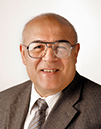 Goodarz Ahmadi
Goodarz Ahmadi
 Francine Battaglia
Francine Battaglia
 James F. Klausner
James F. Klausner
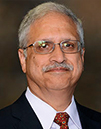 Sumanta Acharya
Sumanta Acharya
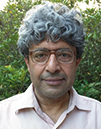 Dr. K. Muralidhar
Dr. K. Muralidhar
 Jon Longtin
Jon Longtin
Affiliation:
- Distinguished Professor Department of Mechanical and Aeronautical Engineering Clarkson University
Bio: Dr. Ahmadi is a Clarkson Distinguished Professor, and Robert R. Hill Professor of Mechanical and Aeronautical Engineering at Clarkson University. He has obtained his MS and Ph.D. from Purdue University. He is a Fellow of ASME, ISME and ISCE and has been just been elected a Fellow of ASTFE. Among his many awards, he was the recipient of the 2016 ASME Freeman Scholar Award. He has four patents and authored three books and over 680 publications in archival journals. He also has made more than 1200 presentations including 20 plenary and keynotes at national and international technical conferences, and has given more than 160 invited talks and short courses at other institutions. He has been serving as the editor, editorial board and/or editorial advisor board of 12 international journals. His research interests include multiphase flows, particle transport and deposition, turbulence, flow control, granular flows, air pollution, flow through porous and fractured media, random vibrations and structural mechanics. His research has been supported by the National Science Foundation, the Environmental Protection Agency, Department of Energy, NASA, AFOSR, NYSTAR, GE, Corning, IBM, Xerox, Kodak and Dura Pharmaceutical. He has held many administrative at Clarkson University including, MAE Department Chair 1992-1995, Associate Dean of Engineering 2003-2005, Interim Vice Provost for Research 2004-2005, and Dean of Engineering 2005-2015. Earlier he served as Dean of Engineering at Shiraz University.
Affiliation:
- Professor of Mechanical & Aerospace Engineering University at Buffalo
Bio: Dr. Francine Battaglia is a professor of mechanical engineering at the University at Buffalo, the State University of New York. She received a Ph.D. in mechanical engineering from the Pennsylvania State University (1997). Dr. Battaglia’s areas of expertise are in computational fluid dynamics and computational model development with applications in alternative energy production, building energy utilization, gasification processes, and bioinspired flight. She has published over 120 journal and conference papers and recently co-authored a textbook on natural ventilation. Dr. Battaglia is the Editor for the ASME Journal of Fluids Engineering, the Chair of the ASME Congress Steering Committee, and served as Chair of the ASME Fluids Engineering Division (FED). She is also a Fellow of ASME, a recipient of the ASME FED 90th anniversary medal for seminal contributions to the discipline of fluids engineering, and recipient of a 2017 ASME Dedication Service Award.
Affiliation:
- MSU Foundation Professor and Chair Department of Mechanical Engineering Michigan State University
Bio: Dr. James Klausner is an MSU Foundation Professor and Mechanical Engineering DepartmentChair at Michigan State University (2016-present). He serves on the board of directors for the American Society of Thermal Fluid Engineers (2018-present) and the International Titanium Association Foundation (2016-present), and he formerly served as Chair of the ASME Heat Trasnfer Division (2011-2012). For three and a half years he served as a Program Director at the U.S. Department of Energy Advanced Research Projects Agency-Energy (ARPA-E). Prior to that he held the Newton C. Ebaugh Professorship in Mechanical and Aerospace Engineering at the University of Florida (1989-2015). He received his Ph.D. degree in 1989 from the University of Illinois, Urbana-Champaign. He has made substantial fundamental contributions to understanding the dynamics of vapor bubble incipience, growth, and detachment in boiling heat transfer systems. He has made many applied research contributions in high temperature solar thermochemical storage, waste heat and solar driven desalination, and high heat flux phase-change heat transfer. Dr. Klausner has authored more than 150 refereed publications, and his theoretical work on bubble dynamics is included in the Handbook of Heat Transfer. He is the author of ten patents and four provisional patents. He is a Fellow of the American Society of Mechanical Engineering, and he has served as is a recipient of the ASME Heat Transfer Division 75 th Anniversary Award.
Affiliation:
- Professor and Chair, Department of Mechanical, Materials and Aeronautical Engineering Illinois Institute of Technology
Bio: Sumanta Acharya (PhD, University of Minnesota, Mechanical Engineering) is the Department Chair of Mechanical, Materials and Aerospace Engineering Department at the Illinois Institute of Technology (IIT) in Chicago, IL (since 2016). He served as the Ring Companies Endowed Chair and Department Chair at the University of Memphis from 2014-2016. From 2010-2014, he served as the Program Director of the Thermal Transport Program in the Directorate of Engineering at the National Science Foundation (NSF). Prior to this, the majority of his academic career was at Louisiana State University (LSU) where he was the L. R. Daniel Professor and the Fritz & Francis Blumer Professor in the Department of Mechanical Engineering. He was the founding Director (in 2003) of the Center for Turbine Innovation and Energy Research (TIER) at LSU which focuses on energy generation and propulsion research. His scholarly contributions include mentoring nearly 85 post-doctoral researchers and graduate students, and publishing nearly 200 refereed journal articles and book chapters and over 250 refereed conference/proceedings papers. Professor Acharya is a Fellow of the ASME, and was awarded the 2015 AIAA Thermophysics Award, the 2014 AIChE Donald Q. Kern Award, the 75th ASME Heat Transfer Division Medal (in 2013), and the 2011 ASME Heat Transfer Memorial Award in the Science category.
Affiliation:
- Senior Professor and Head (Former) of Mechanical Engineering, Former Dean of Research and Development, and Dean of Faculty, Indian Institute of Technology (IIT) Kanpur
Bio: K. Muralidhar is Professor, Department of Mechanical Engineering at Indian Institute of Technology Kanpur (India) since 1995. He received a Ph.D. in Applied Sciences from University of Delaware, USA in 1985. He has guided over 20 doctoral students and has completed funded research in the areas of blooming jets and wake transition, extraction of methane from gas hydrates, growth of optical crystals and more recently, on dropwise condensation over textured surfaces. Over hundred and twenty full-length articles arising from this research have been published in well-known international journals. He has written review articles on flow visualization, interferometric tomography and schlieren imaging. Several patents have emerged from his research and these include enriching coarse MRI images of blood flow, imaging chaotic flow in enlarged arteries, and optical determination of thermal diffusivity of complex liquids. He has coordinated a national initiative on solar hydrogen generation, a multi-institutional project on CFD code development on unstructured grids, and an initiative on futuristic mechanics with IGCAR Kalpakkam. He has co-authored monographs on optical measurement techniques, transport in porous media, and mathematical modeling of dropwise condensation. His present work relates to moisture condensation over mesh-like surfaces and blood rheology.
Affiliation:
- Professor of Mechanical Engineering, 159 Light Engineering Bldg., Stony Brook University
Bio: Jon P. Longtin, Ph.D., P.E. — Professor Longtin joined the Mechanical Engineering faculty at Stony Brook University in 1996. He came to Stony Brook after receiving his Ph.D. degree in 1995 from U.C. Berkeley, followed by a one-year postdoc at the Tokyo Institute of Technology in Japan. His research interests include energy conservation, innovative energy transfer and storage, and energy monitoring and diagnostics, as well as laser materials processing, particularly with ultrafast lasers and the development of sensors for harsh environments. His research has been funded by NSF, DOE, ARPA-E, DOD, NASA, NYSERDA, and a variety of industrial sources. He is the author of over 170 technical publications and holds 11 issued and pending patents. He has received the Presidential Early Career Award for Scientists and Engineers, two Excellence in Teaching Awards, and an R&D 100 award. He is a licensed Professional Engineer in New York State, and is a member of the National Academy of Inventors. He serves as a technical advisor to a number of local companies and non-profit organizations.
Fax: +1 203 456 6167
© Copyright reserved ASTFE, 2025